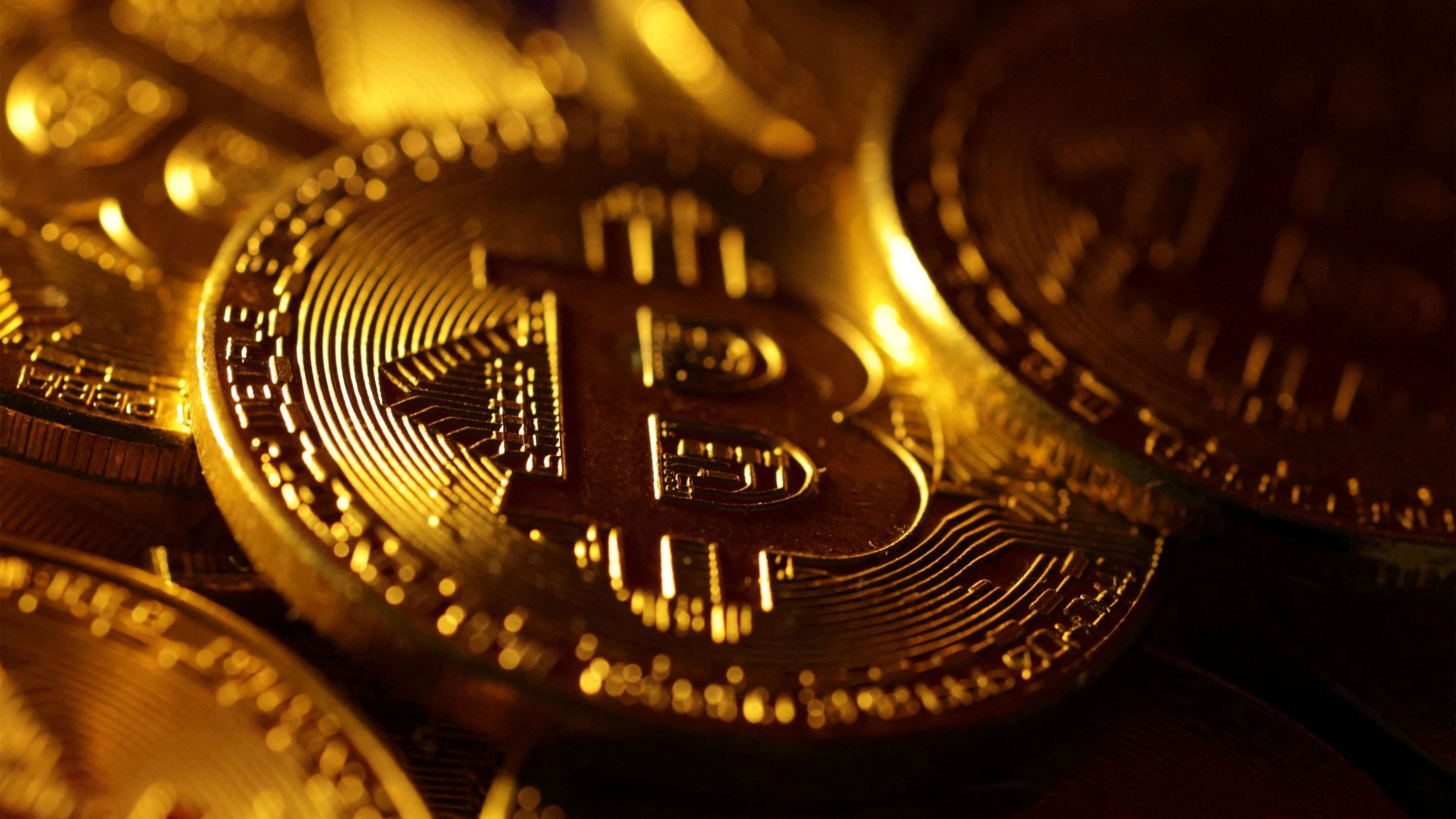
Bitcoin.
Reuters Illustration.
The Indian crypto industry has made several suggestions to the government ahead of the Union Budget’s release next month to foster a level playing field between domestic and offshore exchanges and rationalise taxation to ensure sustained growth.
In a proposal by Bharat Web3 Association (BWA), the crypto body has urged the government to expand the scope of the tax deductible at source (TDS) mandate to explicitly include offshore platforms.
It has also asked the government to reduce TDS itself from 1% to 0.01% and bring the capital gains tax at par with other investment assets to bring back volumes to domestic exchanges. “The high TDS introduced in 2022 has pushed 97% of India’s virtual digital asset exchange volume to offshore exchanges as they have been able to evade compliance up until now, hurting domestic businesses,” Kiran Vivekananda, who is the director of BWA and chief policy officer at CoinDCX, told DH.
Bringing them under the same ambit, as the Indian companies, would ensure that there is a level playing field and that Indians, which make up for the biggest cohort of global crypto inventors globally, are only trading and investing with compliant platforms, he added.
Income from digital asset investments and trading is currently taxed at 30%, which is significantly higher than the capital gains tax levied on other assets, making it less appealing to Indian investors. Additionally, a 1% TDS is charged on every crypto transaction valued more than Rs 10,000 in a bid to monitor large ticket transactions. While the TDS can be reclaimed while filing tax returns, its deduction on each transaction also hurts the liquidity of investors.
“The high TDS rate and the lack of offset have led many Indian virtual digital asset (VDA) users to move to non-compliant foreign exchanges to trade, putting themselves at risk of losing their investment and breaking the law. It also led to lesser tax revenues for the exchequer,” said Ashish Singhal, co-founder and chief executive officer, CoinSwitch. The company has urged the government to allow offsetting and carrying forward losses from sale of VDAs to rationalise the income tax paid on these investments.
Leading exchange CoinDCX has also appealed to the government separately to include its suggestions in the upcoming budget “to foster a more conducive fiscal environment, promoting growth, innovation, and equitable taxation in the virtual digital asset (VDA) space.” Apart from the suggestions put forth by BWA, CoinDCX has also asked the government to increase the TDS threshold from the existing Rs 10,000 to Rs 50,000 to safeguard liquidity of investors, while also providing clarity on the TDS applicable on buying and selling activities the exchange makes on behalf of the investors.
This has come at a time when the financial authorities have brought offshore exchanges under its radar. The Financial Intelligence Unit had recently issued notices to 9 such exchanges urging them to register as a ‘reporting entity’, and file statements with the income tax department. While this a welcome move to ensure equitable compliance requirements and has brought back some volumes to domestic exchanges, it has significantly depleted them of much-needed liquidity, Vivekananda said, adding that it is a necessary evil to ensure safe industry standards. However, exchanges want these requirements to be clarified further.
“We advocate for streamlined and simplified reporting requirements, enhancing transparency and compliance. Clear guidelines and user-friendly reporting procedures would foster smoother operations for crypto businesses,” said Sathvik Vishwanath, co-Founder & CEO at Unocoin.